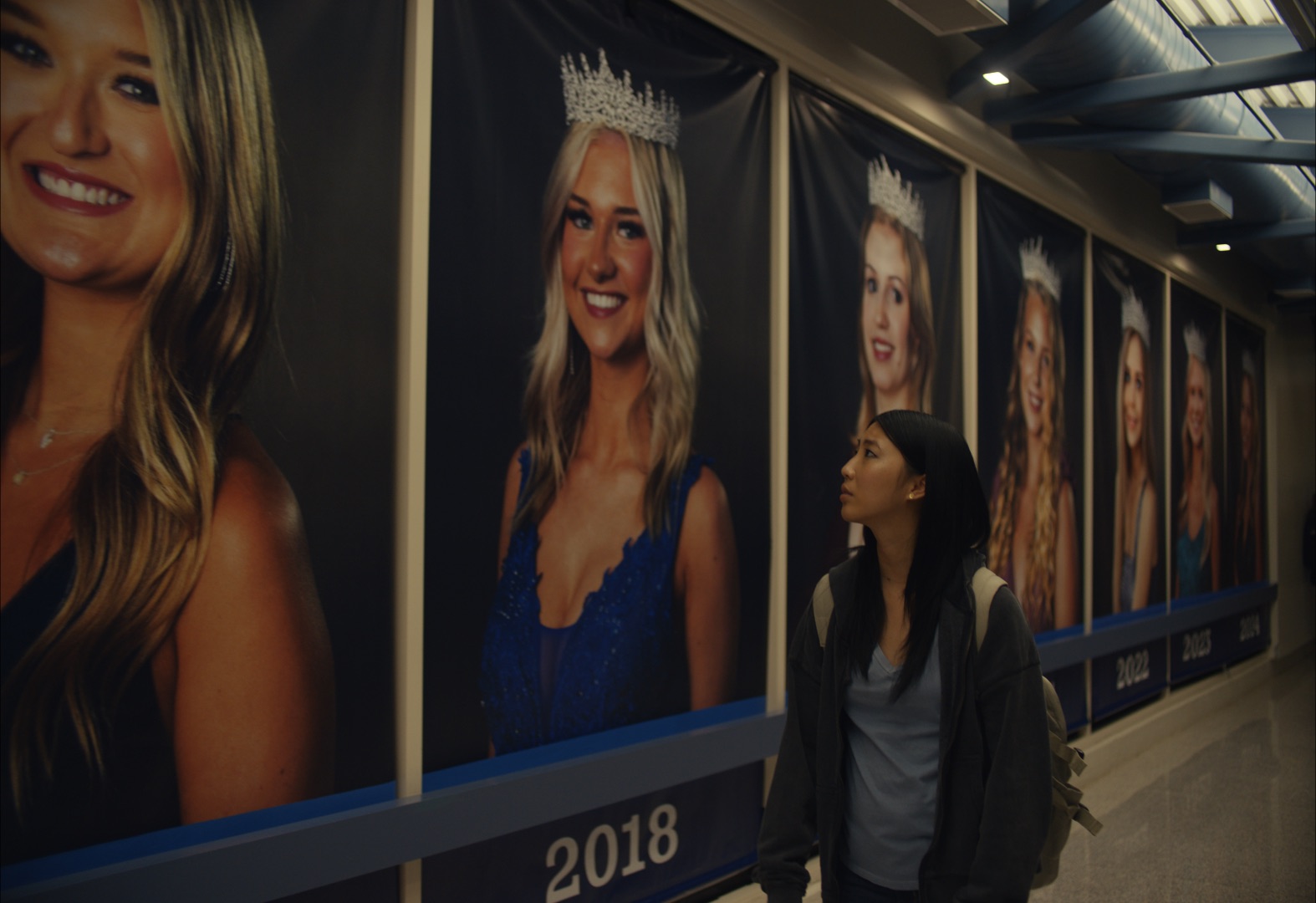

Teenage Nightmare: Horror Film Depicts Unique Hardships of Immigrants
Amy Wang’s New American Perspective film Slanted recounts her own difficult experiences growing up as an Asian immigrant in Australia. Born in China, Wang and her parents moved to Sydney when she was 7. Wang did not know any English except for “A, B, C,” which she repeatedly rehearsed on the plane. Though she picked up the language quickly, Wang’s parents had a much more difficult time adapting to their new home. Wang would accompany them to the bank, grocery store, and even to the car dealership to translate.
She noticed that white Australians treated her parents harshly because they were not fluent in English. Despite this, her parents worked hard, often leaving Wang home alone for long hours. During these periods of solitude, Wang would watch TV.
“I loved the way movies combined different art forms: image, sound, music, production, design—it’s everything in one!” Wang says. “It was very exciting for me to imagine what stories I would tell, and how I could make people feel through film.”
Presented by the Vilcek Foundation, Slanted will premiere at the 45th Hawai’i International Film Festival as part of the New American Perspectives program, which spotlights immigrant filmmakers.
The American Nightmare?
Wang focused hard on her dream, enrolling in the University of Technology, Sydney, to complete her dual bachelor’s degree in psychology and film production. After graduation, Wang worked in television as a promotional producer, including the X Factor Australia campaign. Though she loved the creative aspects of these roles, Wang longed to be able to tell stories of immigrants and non-white individuals, which she did not see reflected in Hollywood. In 2015, she and her partner moved to Los Angeles to pursue her dream.
She was accepted into the American Film Institute on scholarship and began screenwriting. Wang kept thinking about the little girl who moved from China and had to grow up much too fast. Her body-horror film Slanted revisits those experiences, discussing the pressures racism, cultural erasure, and internalized bias can have on young immigrants in the United States.

The Story of Slanted
In Slanted, Chinese-immigrant Joan is determined to be named Prom Queen. After receiving numerous DMs on Instagram from a surgical company called Ethnos that promises “everything is better when you’re white,” Joan decides the only way to win the crown is to undergo their drastic procedure to change her race. The surgery seems, initially, to be a success. But as Joan navigates her new life as a white woman, she begins to doubt the decision she made as she alienates her family, friends, and identity in the search for acceptance.
“This film is very much about how I felt growing up in a different country and having to assimilate so quickly,” Wang explains. “I didn’t want to be the butt of a joke. I felt like if I could nail English, if I could ‘shed’ my Chinese accent, then I wouldn’t undergo the same cruelty that my parents had to.”
After her procedure, Joan’s skin begins to shed and droop. She is told by others who have undergone the same treatment that her body simply needs time to “adjust.” As Slanted progresses, Joan’s uncertainty about her choices only amplifies the negative side effects at an inopportune time—Prom Night.
Wang says that her inspiration for these surgical complications came from her own memories of being made fun of for being different despite her best efforts to fit in.
“Even though I was trying to fix everything about myself, I couldn’t change what my face looked like and I was still routinely teased for being Asian,” Wang says. “When I came up with Slanted, I remembered that feeling of desperation. If the surgical procedure that my fictional character Joan underwent was available to 15-year-old Amy, she might have gone through with it too.”
What she is working on next
Before they immigrated to Australia, both of Wang’s parents were professors in China. After they moved, they were unable to pursue their dreams of becoming artists. Wang hopes to honor her parents by creating films addressing the different barriers individuals from less privilege must overcome to succeed. Her next project, Crescendo, is a psycho-sexual thriller that deals with classism in a competitive piano setting.
Vilcek Foundation
Vilcek Foundation
Share


